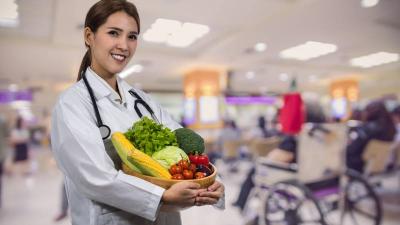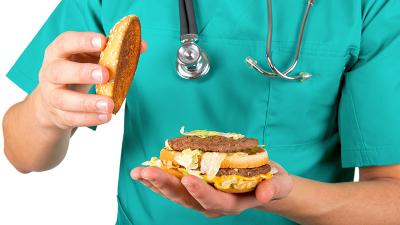Taking the "Angelina Jolie Effect" a Step Further to Prevent Cancer

Last week, Angelina Jolie wrote movingly of her decision to reduce her risk of cancer by opting for preventive surgery. While few of us will ever have to stare an 87 percent risk of cancer in the face, as Jolie did, the unfortunate truth is that at some point in our lives, many of us—nearly one in two men and one in three women—will develop cancer. Whether we carry the BRCA1 gene mutation or not, we can all learn from Jolie’s thoughtful, proactive approach. As a doctor, I want people to know that they already wield some of the most powerful tools to help take control over the risk of cancer: the fork and knife. According to the World Cancer Research Fund, diet and lifestyle changes could prevent up to one-third of U.S. cancer cases. In 2014, the Journal of the American College of Nutrition published research my colleagues and I conducted showing that with so much evidence pointing toward a link between dietary choices and certain types of cancer, we ought to apply the precautionary principle to the foods we eat and avoid the products likely to cause the most harm.
For the most part, that means animal products. Consuming just one serving of processed meat per day can up the risk of colorectal cancer by 21 percent, while drinking two glasses of milk per day can increase the risk of prostate cancer by a staggering 60 percent. In fact, regularly consuming animal protein can quadruple the risk of dying from cancer – making dietary choices just as deadly as smoking. Fortunately, it’s not all bad news. By favoring plant-based foods—fruits, vegetables, whole grains, and legumes—we can dramatically minimize the risk for various types of cancer. For example, one recent study found that vegetarians can reduce their risk of developing colorectal cancer by 22 percent. Another study shows that women who consume the most carotenoid-rich fruits and vegetables—including carrots and sweet potatoes—reduce the risk for breast cancer by about 19 percent. And compared with those who consume meat and dairy products, women who follow plant-based diets have a 34 percent decreased risk for specific cancers including breast, ovarian, and uterine cancers.
Like Jolie said, we can never fully eradicate the risk of developing cancer. But that doesn’t mean we should sit around and wait. Learning about our risk factors and options is a good place to start in taking a proactive, precautionary step forward.








